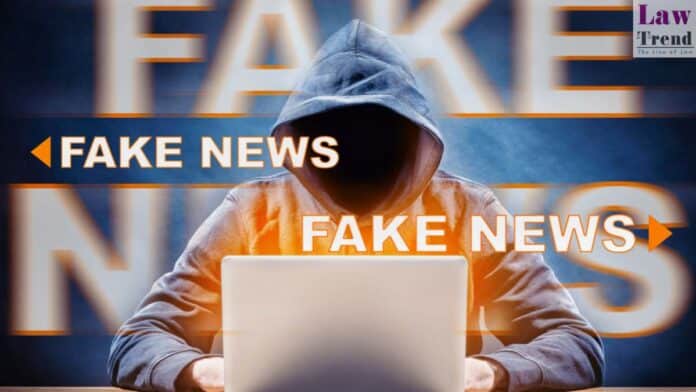The Bombay High Court on Tuesday said the recently amended Information Technology (IT) Rules against fake news on social media give “unfettered power” to a government authority in the absence of “guidelines and guardrails”.
The Union government, on the other hand, assured the court that the Rules were not meant to curb free speech or humour and satire targeting the government, and do not bar anyone from criticizing even the prime minister.
A division bench of Justices Gautam Patel and Neela Gokhale was hearing petitions filed by stand-up comedian Kunal Kamra, the Editors Guild of India, and Association of Indian Magazines against the Rules, terming them arbitrary and unconstitutional and claiming that they would have a chilling effect on the fundamental rights of citizens.

The court on Tuesday also sought to know what necessitated the amendment and provision for a separate Fact Checking Unit (FCU) when the Press Information Bureau (PIB) is already doing fact-checking on social media.
“You (government) have a PIB which has its presence on social media. Why then was this amendment required and for an FCU to be set up? I think this amendment wants to do something more,” Justice Patel said.
Solicitor General Tushar Mehta, representing the Union government, said the PIB was “teethless” (sic) and he would argue on this point on Wednesday.
The objective was not to curb free speech, opinion, criticism or satire against the government or even the prime minister but to create a balancing mechanism to tackle a medium that was “uncontrollable and uncontrolled”, he said.
“The IT Rules are not related to curbing free speech at all. The government is not trying to proscribe and prohibit any expression of opinion, criticism, or comparative analysis in fact we welcome them, encourage them and learn from them,” Mehta said.
The Rules have nothing to do with humour or satire, whether it is to the liking of the government or a political party, as far as the content does not cross the line of what is considered obscene or vulgar, the solicitor general said.
“The government is not going after free speech, opinions, humour, or satire. That is not in the realm of the IT Rules. The Rules only put in place a system. A balancing mechanism is provided,” he added.
The bench, however, remarked that the Rules are “over broad” and without any guidelines.
“The government is the sole arbiter without any checks and balances on what is the truth. Basically, who will fact check the fact checker? We will have to trust the Fact Checking Unit (to be set up under the Rules) as the final arbiter,” Justice Patel said.
When Mehta reiterated that the FCU would be only checking fake and false facts and not opinion or criticism, the court asked how can it be said that the government’s truth was the final truth.
The bench further noted that the term “government business” in the Rules was largely undefined.
Mehta responded that it was a well-demarcated term. “What the executive does is the business of government, what the Prime Minister says or does is not the business of government he can be criticised,” Mehta said.
The court noted that there must be some guidelines in place for the Rules.
“Without guidelines and guardrails this is an unfettered power. The funnelling of power to determine what is true to a government authority ” Justice Patel said.
The court further noted that while the government was saying that the Rules apply only to fake news, the Rules, on the face of it, say information and not facts.
“The Rules says any information that would include data, text, image or sound that is fake, false and misleading. The definition of information is not limited to facts. It is expansive to include opinions and criticism. The Rules do not say facts. Data or information can be everything data is opinion data is parody also. Therefore, it is not limited to facts,” Justice Patel said.
The court also said that the IT Act was “confusing” regarding the meaning of the word `information’.
Mehta reiterated that the term data, as used in the Rules, only includes fake and false facts and the high court may record his statement. But the bench said it could not do so.
Also Read
“The government is not doubting the intelligence of its citizens. People can post anything they want, criticise the government but fake, false and misleading facts will not be allowed. Fake and false facts with emphasis on facts, not opinion or criticism,” Mehta said.
India and the whole world was grappling with the problem of a medium that was “uncontrolled and uncontrollable” where false, fake and misleading facts are peddled around at the click of a button, he said.
The hearing will continue on Wednesday.
In April this year, after the petitions were filed, the Union government had told the court that it would not notify the Fact Checking Unit till July. Last month, the statement was extended till October 3.
On April 6, 2023, the Union government promulgated certain amendments to the Information Technology (Intermediary Guidelines and Digital Media Ethics Code) Rules, 2021, including a provision for a Fact Checking Unit to flag fake, false or misleading online content related to the government.







